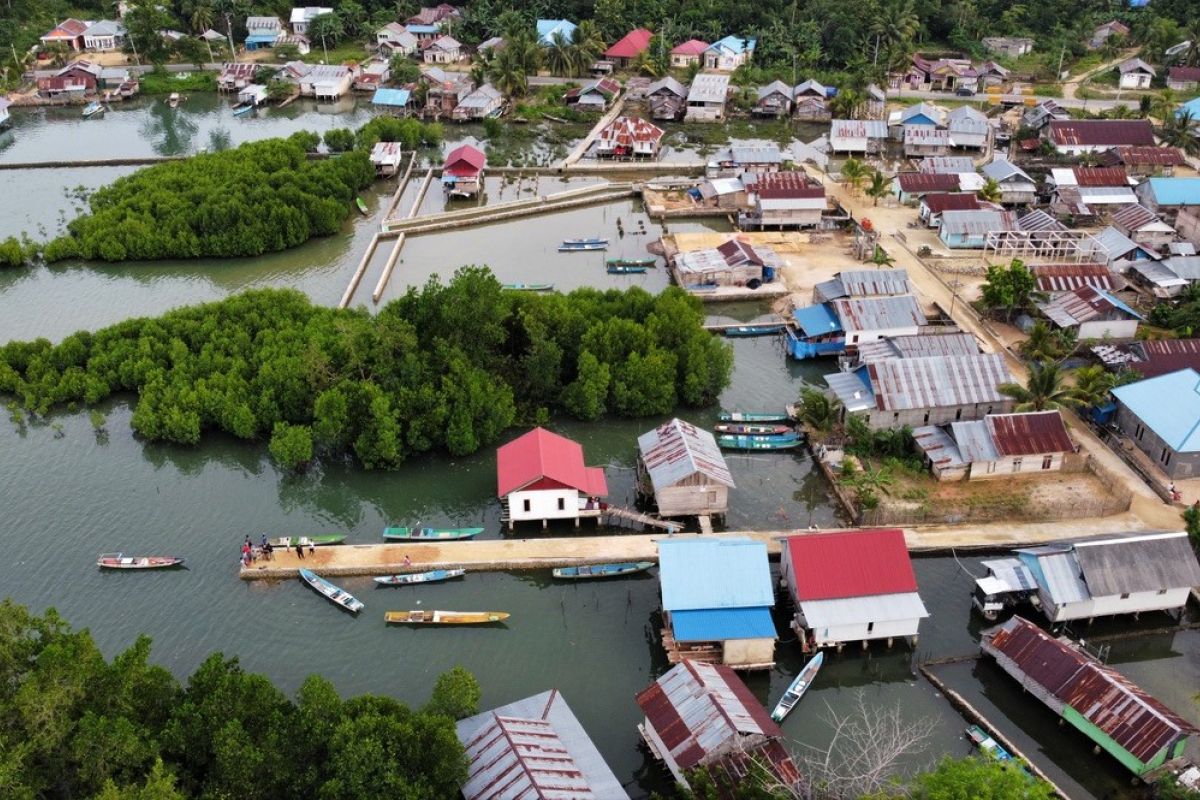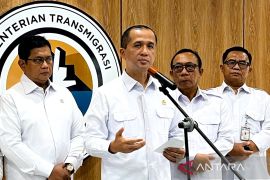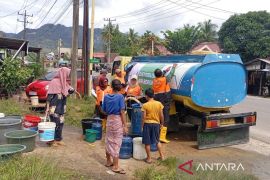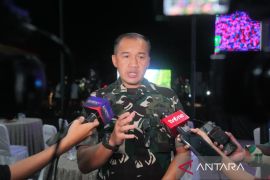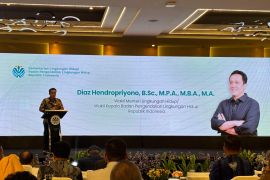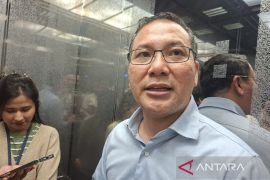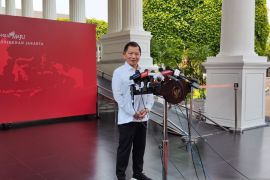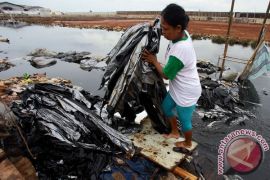Meanwhile, the United Nations General Assembly in 2010 recognized that access to safe drinking water is a human right.
Increasing access to safe drinking water is also included in the Sustainable Development Goals that must be achieved by 2030, specifically "Realizing Access to Safe and Sustainable Drinking Water and Sanitation for All."
Access to clean water and proper sanitation is a vital variable that determines the quality of individual health that will have an impact of 70 percent on the stunting reduction efforts.
The government has set a target in the 2020-2024 national medium-term development program (RPJMN) that 100 percent of households have access to safe drinking water by 2024, including 15-percent access to safe drinking water and 30-percent access to piped drinking water.
However, the trend of increasing clean water service coverage still requires intensive encouragement. In the last three years, the coverage of safe drinking water has only increased by 1.5 percent.
The 2021 National Socio-Economic Survey (Susenas) noted that households with access to safe drinking water only reached 90.78 percent, with around 12 percent of the households having access to safe drinking water and approximately 19 percent having access to piped drinking water.
Following this, the Ministry of State-Owned Enterprises (SOEs) had sought breakthroughs in speeding up the distribution of clean water services through the Indonesia Water Fund (IWF) Program.
Under its initial target, the Indonesia Water Fund (IWF) will manage around US$1 billion to improve clean water access for 40 million Indonesians, Minister of State-Owned Enterprises (SOEs) Erick Thohir stated.
Related news: Indonesia Water Fund to expand clean water access: Minister
Related news: Desalination technology can help to address clean water crisis: BRIN
The IWF aims to be a quick solution for distributing clean water access; expediting inclusive, sustainable, and efficient clean water provision for all Indonesians; and expanding the scope of the national clean water service, he said.
The IWF is also a form of funding for clean water that will operate alongside the state budget independently, so it will not burden the state budget directly, he remarked.
The funding has been set up as part of the efforts to optimize Indonesia's gross domestic product (GDP), as inadequate water supply could potentially reduce the national GDP by 2.5 percent in 2045, he added.
The IWF was initiated by the Ministry of SOEs through synergy among Danareksa SOEs Holding -- Danareksa, Nindya Karya, Perum Jasa Tirta 1, and Perum Jasa Tirta 2 -- to provide water connections in various parts of Indonesia.
Deputy Minister of State-Owned Enterprises (BUMN) II Kartika Wirjoatmodjo stated that the IWF program could expand reach of clean water through the local tap water company (PDAM) to end people's dependence on groundwater.
Wirjoatmodjo said the problem riddling Indonesia was that people still extensively used ground water despite the actual regulation not being allowed.
According to the regulation, people should use water from PDAM. However, PDAM services have not yet reached majority members of the community.
If PDAM can reach the community, then there will be no need for the community to use groundwater, Wirjoatmodjo remarked.
This is deemed crucial to implement together since in Indonesia, especially in Java, big cities, including Jakarta and Semarang, have experienced significant land subsidence due to excessive use of groundwater.
The IWF program is important, as it ensures that the community has effective and cheap water connections, so that they no longer need to buy clean water.
Regarding its operations, the Ministry of SOEs will work closely with the Ministry of Public Works and Public Housing, as a regulator regarding raw water and clean water.
The Ministry of SOEs will also cooperate with local governments, including city and district governments, as well as other stakeholders.
Meanwhile, Vice President Ma'ruf Amin lauded the initiative of the Ministry of SOEs that has made a breakthrough through the IWF Program.
Vice President Amin remarked that the IWF was a breakthrough in accelerating clean water distribution in accordance with the mandate of the Indonesian Constitution that recognizes and guarantees the right to water.
The Indonesian Constitution recognizes and guarantees the right to water as an embodiment of the fulfillment of human rights of the Indonesian people as well as a form of social human rights in which the role and involvement of the government is a necessity, he remarked.
To this end, the vice president emphasized that the management of water, as a national wealth, as well as the needs of the people aims to realize prosperity and justice for all Indonesian people.
Amin emphasized that the existence of water is not only fundamental to support human life, but it is also essential to maintain a temperature balance for the survival of all creatures on earth.
Based on the need for clean water that is still quite high and urgent, the Indonesian government has targeted to improve clean water facilities for the Indonesian people through a sustainable economic system, so that the public can make the most of the results of equitable distribution of clean water services.
Amin expressed optimism that the existence of IWF, as a platform to support the acceleration of investment in providing clean water connections to houses (SR), can be an alternative solution for the government through non-state budget (APBN) funding.
However, the government and SOEs cannot work alone in an effort to fulfill the need for clean water. We need the participation of the business world, philanthropy, professional organizations, academia, the media, and non-governmental organizations, he said.
This network must be developed strongly and be well-coordinated. Hence, this international conference can serve as an arena to develop networks in increasing public access to clean water, the vice president stated.
Related news: IWF can help end public's dependence on groundwater: Deputy Minister
Related news: US$1-bln IWF to improve clean water access: minister
Editor: Sri Haryati
Copyright © ANTARA 2022
